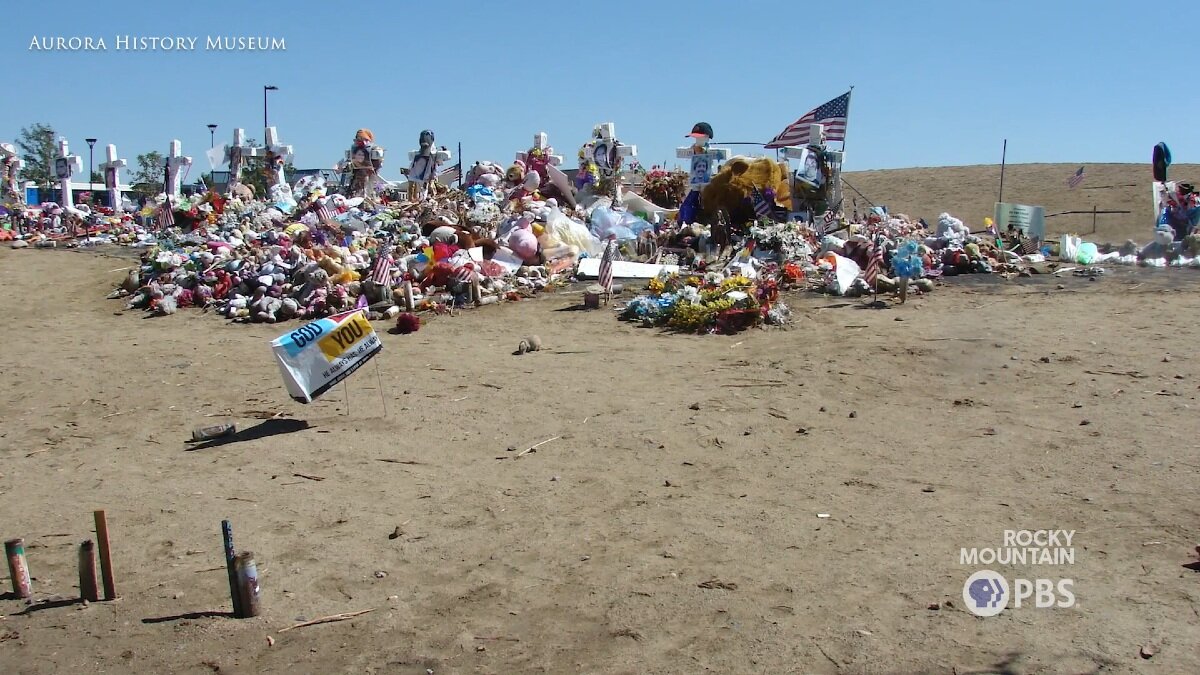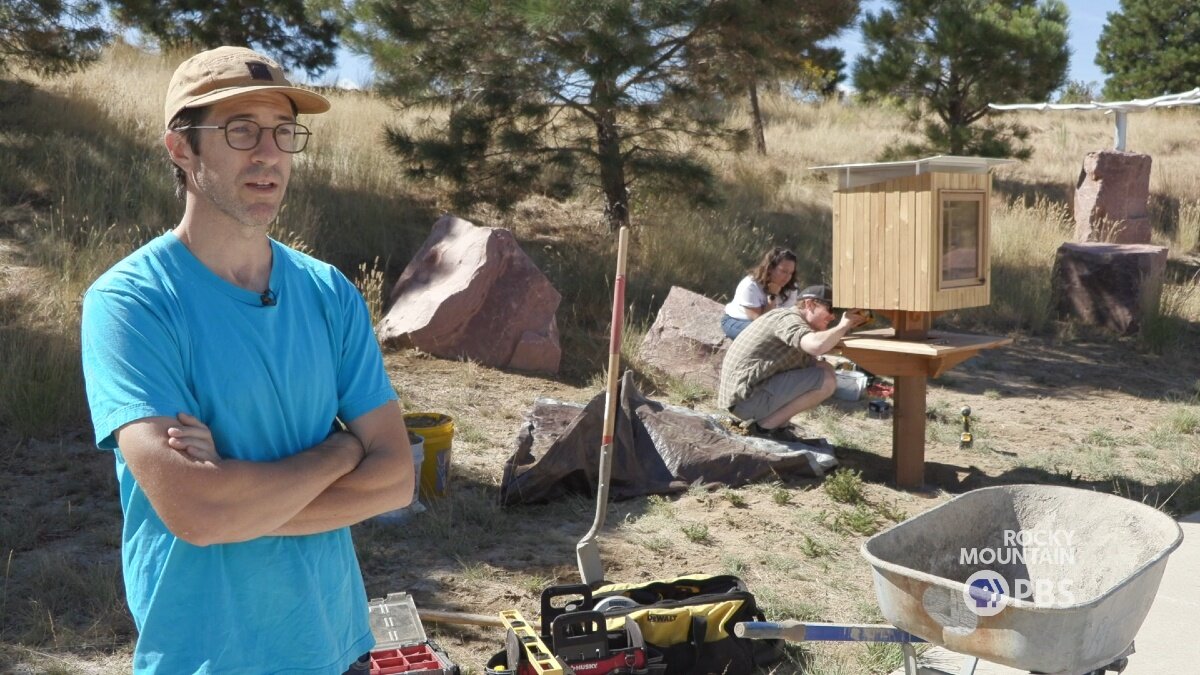Tributes to Aurora theater shooting victims cemented into new lending library

AURORA, Colo. — For more than two decades, Brandon Kellogg has tried to process the trauma caused by gun violence he experienced as a teenager.
In 1999, Kellogg was a freshman at Columbine High School when 12 of his schoolmates and a teacher were shot and killed. Though he survived the shooting, the healing process is ongoing. Part of that healing has been Kellogg’s work with the 7/20 Memorial Foundation, a nonprofit established after another mass shooting that rocked Colorado and the country as a whole: the Aurora theater shooting in 2012.
On the ninth anniversary of the Aurora tragedy, Rocky Mountain PBS spoke with Heather Dearman, the 7/20 Memorial Foundation’s CEO. Dearman’s cousin, Ashley Moser, was wounded in the shooting, and Moser’s daughter was killed.
[Related: Nine years after Aurora theater shooting, community members share messages of love and healing]
Dearman’s nonprofit established the 7/20 Memorial, located on East Alameda Parkway adjacent to the Aurora Municipal Center. When we spoke with her in July, she highlighted the memorial’s newest addition: a paper crane little lending library.
“I come in here feeling really accomplished that we’re paying the love forward that we were meant to pay forward,” she told us.
Dearman worked with Kellogg to build the little library. It houses not only free books for people to take, but also paper cranes that people can fold and leave messages on. In July, the library wasn’t a permanent part of the memorial. That changed this month.
Kellogg cemented the lending library into the ground, and the cement carries a special significance. In the days following the shooting nine years ago, a makeshift memorial was set up across the street from the theater. Hundreds of cards, photos, flowers, stuffed animals and other memorial items quickly piled up.

The items were archived by the Aurora History Museum. Eventually the museum needed to clear space from its warehouse (and many of the items began to deteriorate), so they called Dearman to ask for an idea of what to do with all these personal, emotional pieces of history.
“They didn’t want to just throw that stuff in the garbage because it meant so much to people,” Dearman said. She had an idea, though: cremate it.
The idea resulted in three bags of ash, which have been in Dearman’s possession “for years,” she said. She didn’t know what to do with them until Kellogg told her they would have to cement the lending library into the ground.
“I asked him, ‘Is there a way you could put them in the cement so that it could be part of the foundation of this special piece of art?’ And he said yes,” Dearman explained.
She continued: “They put that stuff there because they wanted us to feel stronger and they wanted us to feel hope and comfort and love. And it’s just so perfectly fitting that that’s exactly what it is still doing today: it is keeping this post over here strong.”
Rocky Mountain PBS was at the memorial as Dearman and Kellogg mixed the ashes into the cement.
“Now we can tell everybody, ‘Come and visit the garden and your stuff is there,’” Dearman said.

For Kellogg, the project was a way to “reflect on years of pain, and turn it around into love and healing.”
“This was an opportunity to find my way,” he added, “to use my voice and use my skills to bring awareness to the reality of the pain that gun violence and the scars that it leaves upon a community.”
Brian Willie is the Content Production Manager at Rocky Mountain PBS. You can reach him at brianwillie@rmpbs.org.
Kyle Cooke is the Digital Media Manager at Rocky Mountain PBS. You can reach him at kylecooke@rmpbs.org.